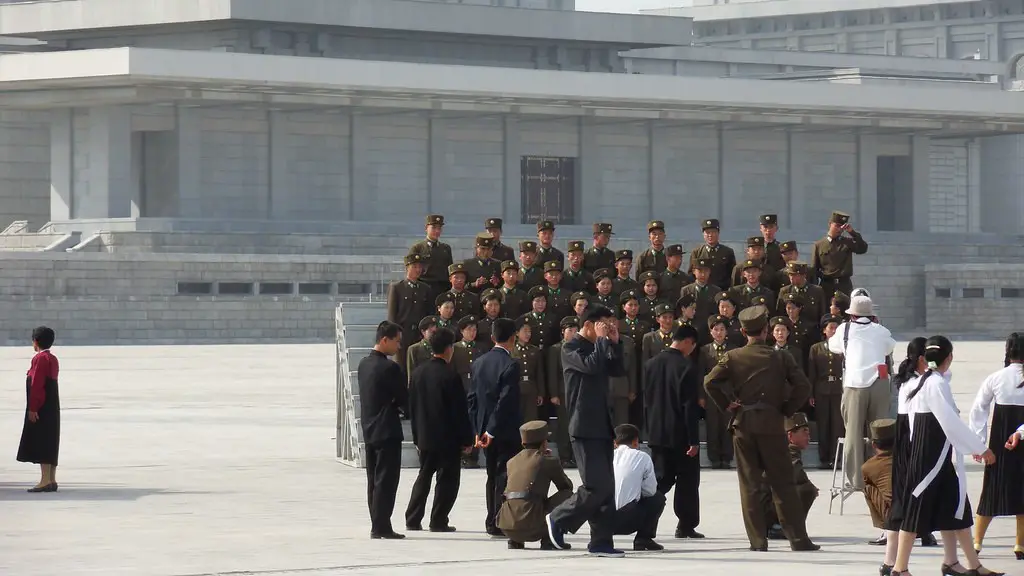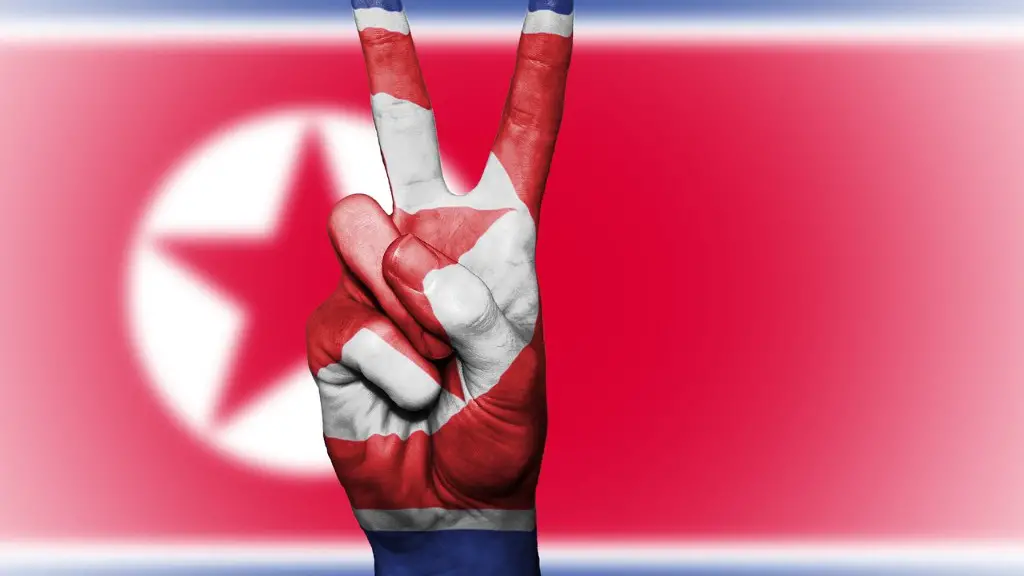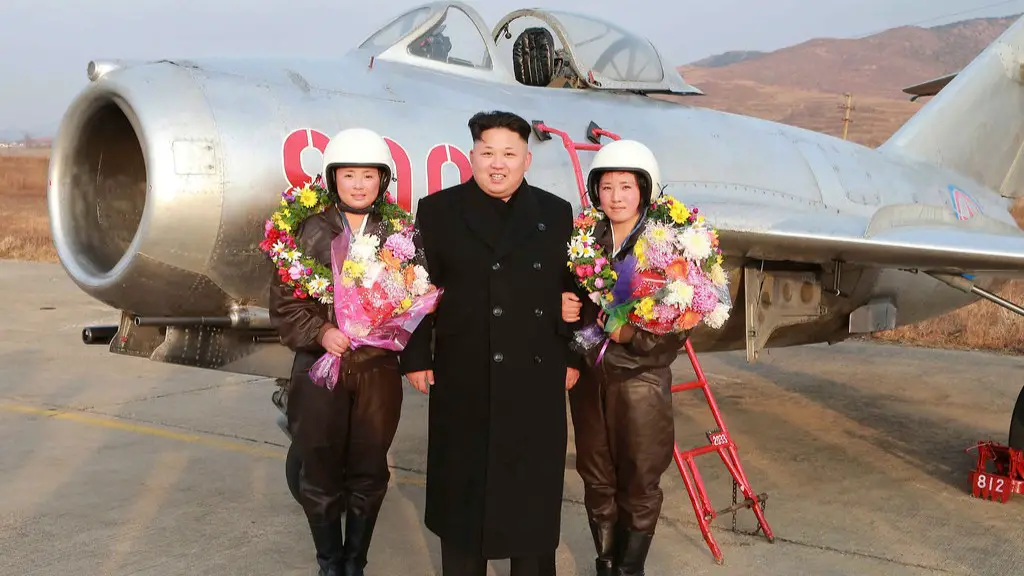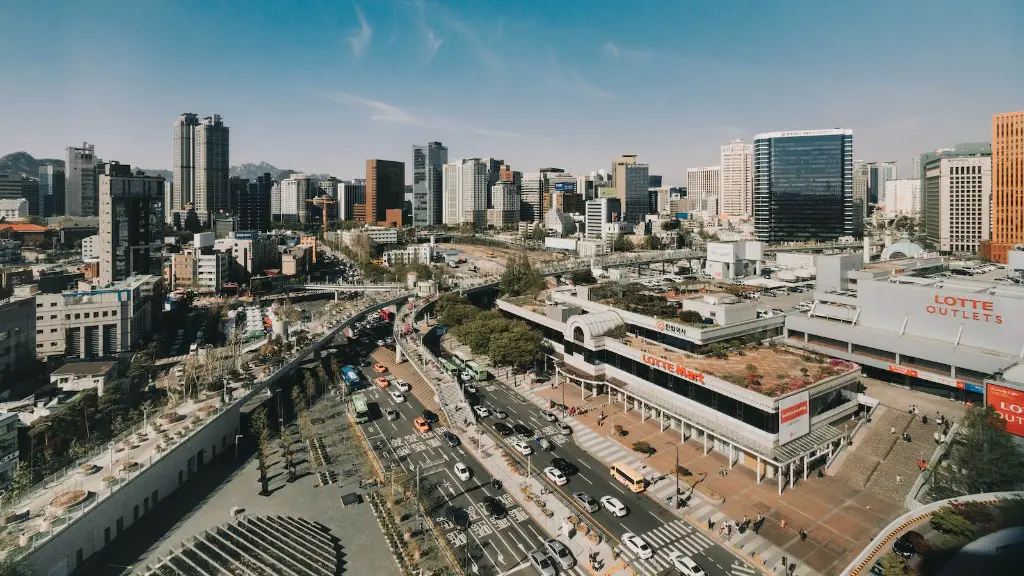Since the Korean War, China has been one of the few countries to maintain diplomatic relations with North Korea. Due to their shared border, China has been influential in both the economic and political development of North Korea. However, many experts believe that China does not have as much control over North Korea as it would like. While China has been able to use its economic power to pressure North Korea on some issues, it has been less successful in changing North Korea’s behavior in other areas, such as its nuclear program.
No, China does not control North Korea.
Is North Korea sanctioned by China?
According to UN resolutions, China has banned imports of coal, petroleum products, and textiles from North Korea. These sanctions are in place in order to put pressure on the North Korean government to end their nuclear program. China is North Korea’s main trading partner, and so these sanctions could have a significant impact on the North Korean economy.
The DPRK is an authoritarian state led by the Kim family. Kim Jong Il was the leader for many years, and after his death in 2011, his son Kim Jong Un took over. The DPRK is a communist state, and the government controls many aspects of people’s lives. The economic situation in the DPRK is not good, and many people are living in poverty.
What happens if a North Korean goes to China
If the defectors are caught in China, they are repatriated back to North Korea. This is because North Korea does not recognize them as refugees and instead sees them as criminals. Once they are back in North Korea, they are often interrogated and punished severely. In some cases, they may even be sent to prison camps, where they may face death.
The North Korea-China diplomatic relations are based on the “One China” policy, which means that North Korea only recognizes the People’s Republic of China (PRC) as the only legitimate government of China, and does not acknowledge the Republic of China (ROC) or Taiwanese independence. In the past, these two nations have enjoyed close diplomatic relations with each other.
Is China allies with North Korea?
Despite their nominal alliance, tension and even antagonism have existed between China and North Korea for over 70 years. Since 2018, Beijing has taken steps to maintain its influence over North Korea and forestall any attempt by Pyongyang to stray from its orbit.
China has been North Korea’s closest ally since the Korean War, but the relationship has always been fraught with tension. In recent years, Beijing has grown increasingly frustrated with North Korea’s continued development of nuclear weapons and ballistic missiles, which threaten China’s security interests.
In 2018, Beijing took a number of steps to assert its influence over North Korea and prevent Pyongyang from straying from its orbit. These steps included sending high-level delegations to North Korea, increasing economic assistance, and strengthening communication and coordination between the two countries’ militaries.
Despite these efforts, tensions between China and North Korea remain high. Beijing is concerned about North Korea’s continued development of nuclear weapons and ballistic missiles, and about the potential for instability in North Korea if the regime collapses.
If you are considering traveling to North Korea, the US Department of State strongly advises against it due to the serious risk of arrest and long-term detention of US nationals. The North Korean government continues to detain US citizens without due process, and there is no way to guarantee safe travel or communication in the country. If you must travel to North Korea, exercise extreme caution and be aware of the risks involved.
Is North Korea a US ally?
Since both countries do not have diplomatic relations, tensions between North Korea and the United States have been historically hostile. There have been various issues that have caused this hostility, such as the Korean War, North Korea’s nuclear capabilities, and human rights abuses. However, in recent years there have been some steps taken towards improving relations, such as when North Korea released three American citizens who had been detained. Although there is still a lot of mistrust between the two countries, hopefully this will continue to improve in the future.
However, in September 2017 the U.S. State Department announced that it was banning American citizens from traveling to North Korea, citing the risk of “long-term detention” as the reason for the ban. The announcement came after the death of American student Otto Warmbier, who was detained in North Korea for 17 months and later released in a coma.
Can North Koreans leave legally
Freedom of movement is something that North Korean citizens are not typically able to enjoy. Emigration and immigration are both heavily controlled and restricted, meaning that people are not able to freely travel around the country, let alone travel abroad. This lack of freedom can be frustrating and stifling for many people, but it is something that is unfortunately a reality for many in North Korea.
It is a common misconception that only westerners are restricted from travel to North Korea. In fact, the only nationalities restricted from travel to North Korea are tourists travelling on South Korean (Republic of Korea) and United States of America (USA) passports. All other nationalities are legally allowed to visit the DPRK.
Are Japan and China allies?
Sino-Japanese relations have been mired with geopolitical disagreements since the end of World War II. The enmity between these two countries emanated from the history of the Japanese war and the imperialism and maritime disputes in the East China Sea. Despite the fact that both countries are now democratic, the legacy of the past still colors the way these two countries view each other. In order to improve relations, both sides need to take steps to come to a better understanding of each other’s history and perspectives.
The Regional Comprehensive Economic Partnership (RCEP) is a free trade agreement between the Asia-Pacific nations of Australia, Brunei, Cambodia, China, Indonesia, Japan, Laos, Malaysia, Myanmar, New Zealand, the Philippines, Singapore, South Korea, Thailand, and Vietnam.
RCEP is the world’s largest trading bloc, accounting for approximately 30% of the global GDP and 31% of world trade. The agreement is seen as a way to further integrate the economies of Asia-Pacific and to counter the regional influence of the United States.
The negotiators of RCEP hopes to conclude the agreement by the end of 2019.
Are South Korea and China friends
Since 2004, China has been the main trade partner of South Korea and is considered a key player for the improvement of inter-Korean relationships. South Korea is perceived by China as the weakest link in the US alliance network in Northeast Asia. China sees an opportunity to improve relations with North Korea by capitalizing on the tensions between the US and South Korea.
North Korea has a military nuclear weapons program and, as of early 2020, is estimated to have an arsenal of approximately 30 to 40 nuclear weapons and sufficient production of fissile material for six to seven nuclear weapons per year. Although the country has been a member of the Nuclear Non-Proliferation Treaty (NPT) since 1985, it has never submitted to International Atomic Energy Agency (IAEA) safeguards and has denied inspectors access to its nuclear facilities. North Korea also withdrew from the Missile Technology Control Regime (MTCR) in 2001. In 2006, North Korea announced that it had successfully carried out its first nuclear test. Further tests were conducted in 2009, 2013, and 2017. In 2019, North Korea indicated that it might resume nuclear and intercontinental ballistic missile (ICBM) testing if the United States did not make concessions in the ongoing negotiations.
Where does North Korea get its money?
The Juche ideology of North Korea has resulted in the country pursuing autarky in an environment of international sanctions. While the current North Korean economy is still dominated by state-owned industry and collective farms, foreign investment and corporate autonomy have increased. This has allowed North Korea to maintain its independence in spite of international pressure, but has also made it difficult for the country to develop economically.
The China military power report estimates that Beijing’s nuclear stockpile has surpassed 400. That report found that China will likely field a stockpile of about 1,500 warheads by its 2035 timeline if it continues at its current pace of nuclear expansion.
Warp Up
There is no one-size-fits-all answer to this question, as the level of control that China has over North Korea varies depending on the situation and on the specific actions of the Chinese and North Korean government at any given time. However, it is generally accepted that China does have a fair amount of influence over North Korea, which it has used in the past to try and bring about peace and stability in the region.
Although China has objections to many of North Korea’s policies, it is not in China’s interests to see North Korea collapse. Therefore, it is likely that China does have some control over North Korea, although the extent of that control is unknown.





